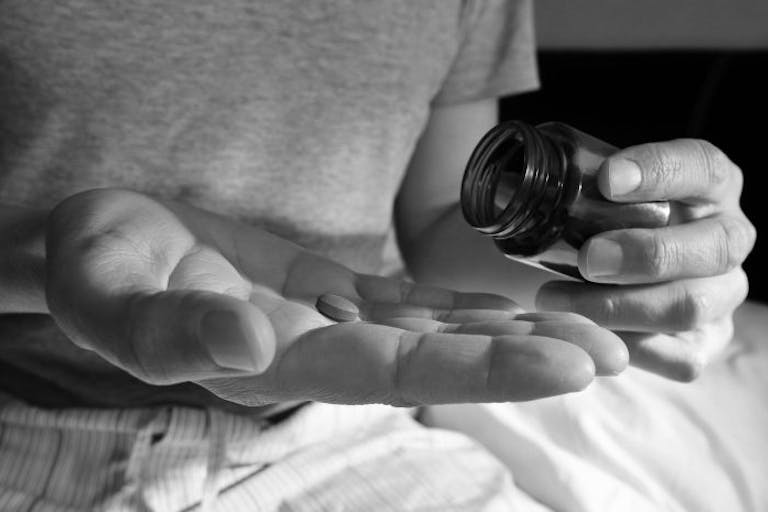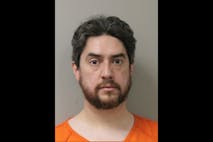
Vietnamese Catholics widen support for pregnant mothers
Angeline Tan
·
Australian doctor slams assisted suicide: ‘I want to care for people, not kill them’
In Australia, the legalization of assisted suicide is under debate. Proponents are urging for residents to vote in favor of “assisted dying” legislation, and in both Victoria and New South Wales, the legislation does not even require a patient to be in physical pain — suffering from “existential or psychological” pain could make one a candidate for assisted suicide as well. For one doctor, this is unconscionable.
Dr. John Obeid penned an op-ed for the Daily Telegraph, arguing that a doctor’s duty is not to facilitate death. Obeid declared the phrase “assisted dying” to be “outrageous,” because it’s what doctors already do. “Assisting dying patients by providing pain management and emotional and psychological support is exactly what health professionals already do but assisting a dying patient is altogether different from deliberately ‘assisting’ that patient to die by administering or prescribing a lethal substance,” he wrote.
Obeid, a geriatrician (a doctor who specializes in treating the elderly), doesn’t need assisted suicide or euthanasia to help his patients. “Medical science has provided us with a plethora of medications for pain management (and indeed for all other symptoms one might experience at the end of life) so there is no reason for a patient to languish in physical pain,” he said. Instead, doctors need more funding for “palliative care and geriatric medicine services so that all patients approaching the end of life can access the type of medical care that will truly give them dignity and relief of suffering.”
He also directly addressed the issue of assisted suicide for those experienced “psychological suffering,” saying, “It is not uncommon for older patients approaching death or other patients who have been diagnosed with a terminal illness to go through a period of distress or depression as they strive to cope with their prognosis, the fear of the unknown and loss of their independence,” he explained. “This is when our patients need us most. It is when as doctors and nurses we are called upon to not just cure in a physical sense but also provide healing in a holistic way, through giving our time and compassionate care to patients. It is unthinkable that we would assist such vulnerable patients with suicide.”
Article continues below
Dear Reader,
In 2026, Live Action is heading straight where the battle is fiercest: college campuses.
We have a bold initiative to establish 100 Live Action campus chapters within the next year, and your partnership will make it a success!
Your support today will help train and equip young leaders, bring Live Action’s educational content into academic environments, host on-campus events and debates, and empower students to challenge the pro-abortion status quo with truth and compassion.
Invest in pro-life grassroots outreach and cultural formation with your DOUBLED year-end gift!

When patients request euthanasia, he says, it is usually due to a fear of the unknown. “[W]hen we take the time to speak with them, to listen to their fears and answer their questions, much of their anxiety is relieved, a relationship of trust is strengthened with the patient and the request for euthanasia is not made again,” he said. “Their sense of relief that they will be cared for with dignity renders euthanasia unnecessary as the age-old doctor-patient relationship is affirmed.”
And why do people often request assisted suicide? Not because it’s their own choice, but because it is someone else’s, according to Dr. Obeid, and that a “right to die” becomes a “duty to die.”
“In 2016 nearly half of all people (48.9 per cent) who died after taking prescribed lethal medication in Oregon in the United States cited concerns about being a ‘burden on family, friends/caregivers’ as a reason for making the request,” he pointed out. “The vast majority (65 per cent) had no concerns at all about being in physical pain. Doctors caring for such patients have valid serious concerns that patients will choose suicide just because they are worried they might be a ‘burden’ on others.”
Yet assisted suicide advocates rarely take any steps to protect people from being coerced into euthanasia. “My patients frequently express that they feel they are a burden on the family members caring for them. Patients even apologise to me for taking up my time even though it is my job to care for them,” Obeid said. “We need to assure these people that they are not a burden and that they are more than worthy of our time and compassion. We must not place upon such vulnerable patients an implicit expectation that they will elect assisted suicide for the convenience of those around them.”
Live Action News is pro-life news and commentary from a pro-life perspective.
Contact editor@liveaction.org for questions, corrections, or if you are seeking permission to reprint any Live Action News content.
Guest Articles: To submit a guest article to Live Action News, email editor@liveaction.org with an attached Word document of 800-1000 words. Please also attach any photos relevant to your submission if applicable. If your submission is accepted for publication, you will be notified within three weeks. Guest articles are not compensated (see our Open License Agreement). Thank you for your interest in Live Action News!

Angeline Tan
·
International
Angeline Tan
·
Human Interest
Nancy Flanders
·
Politics
Nancy Flanders
·
Politics
Bridget Sielicki
·
Analysis
Cassy Cooke
·
Analysis
Cassy Cooke
·
Analysis
Cassy Cooke
·
Analysis
Cassy Cooke
·
Analysis
Cassy Cooke
·
International
Cassy Cooke
·